Consumer issues recently attracting attention
Part 1 : Trends in consumer issues and consumers' attitude/behavior
Chapter 1 : Collection of information on consumer accidents and result of analysis
Section 4 : Consumer issues recently attracting attention
The percentage of consultations on problems related to access to the Internet using smartphones increased.
- For consultations related to "digital content" involving the usage of websites, the percentage of consultations claiming problems associated with smartphones has increased from approximately 10% in 2012 to 48.0% in 2016.
- The number of consultations on "smartphone-related services" in which users accessed digital content such as "adult websites" and "dating websites" through smartphones was 82,000 in 2016.
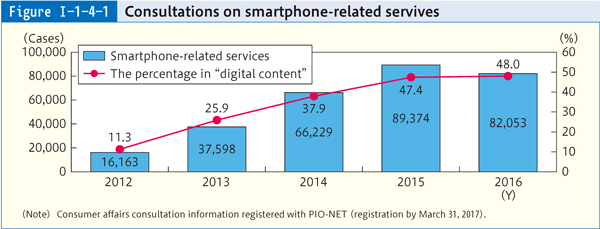
Consultations related to troubles involving SNS are increasing.
- The number of consumer affairs consultations related to troubles arising from SNS (Social Networking Service) is on the increase, and over 11,000 cases were reported in 2016.
- From 2012 to 2016, the number of consultations increased 2.5 times, about 5 times more in the age groups of 50s and 60s, and about 7 times in 70 years & over. An increase was especially noted among middle-aged and elderly consumers, and 1.5 times higher for women than men.
- There are various types of consultations, including "I was lured into a dating website through SNS and I registered, but it seems fishy.", "I saw an advertisement about side work on SNS and registered on the website, purchased points over and over, and finally realized it was a fraud.", etc.
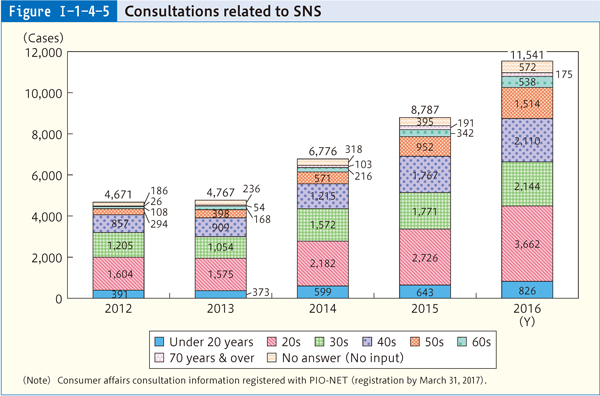
There was a rapid increase in the health food consultations which were supposed to be a trial but turned out to be repeated purchases.
- There was a rapid increase in consultations in 2016, where consumers ordered health foods such as weight loss supplements or cosmetics as a "trial" via online stores, etc., but it turned out to be repeated purchases.
- More than 80% of the consultations were related to women, and 20% of them were related to women in the age groups of 10s and 20s.
- Common cases were, consumers believed it was a "trial" or "one-time purchase" but in fact, the contract turned out to be for repeated purchases. Examples are; "I tried to unsubscribe but the phone call cannot be connected," "When I tried to unsubscribe, they charged me the regular price," etc.
- There are cases in which conditions were explained that this is only applicable for repeated purchases, but in small letters, or in a different window.
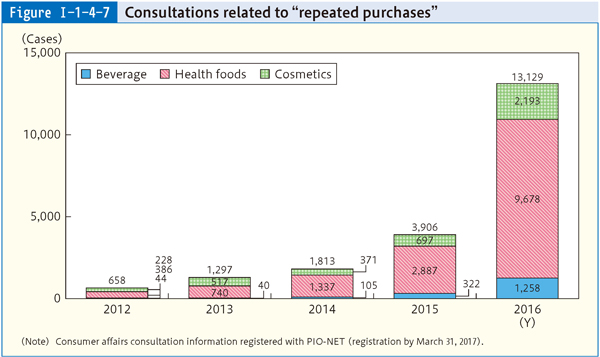
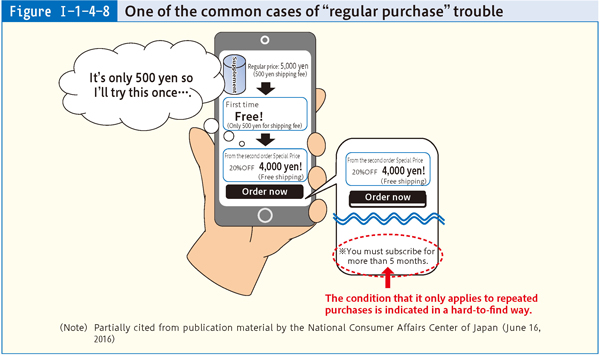
Consultations related to adult websites have decreased among the youth, but increased among middle-aged and elderly consumers.
- The number of consultations related to "adult websites" was dominant regardless of gender or age.
- As for the number of consultations in 2010, 2013 and 2016, there was a decrease for men under 20 years to their 40s, while an increase was seen for those in their 50s & over. The number of consultations for men in their 60s was the highest.
- While it decreased for women under 20 years to their 30s, it increased for those in their 40s & over.
- It seems that the middle-aged and elderly consumers, who are not used to using smartphones, are the ones involved in problems.
- There is a possibility that although they face billing fraud, the youths tend "to ignore them."
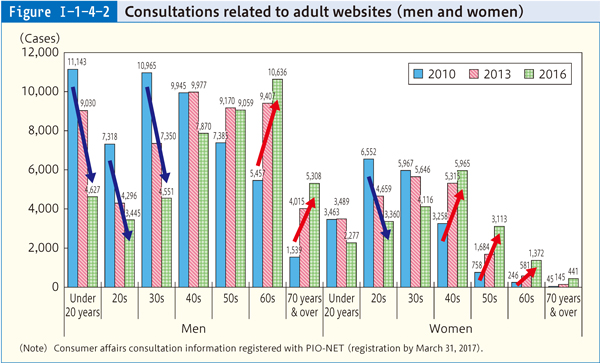
People suffer secondary damage by trying to solve adult websites problems.
- Recently, there is an increase in secondary damages such as, receiving a large bill due to contacting a detective agency, etc. to solve adult websites billing.
- There are cases in which consumers access websites of or call detective agency, etc., which advertise "damage recovery," on online advertisements using names which consumers may confuse with public consumer consultation offices (such as "Consumers .X Center").
- Among the consultations concerning secondary damage, people in their 40s who are also the highest in all age groups for consultations related to adult websites was the highest, but the number is also remarkable for people in their 20s and 30s, who frequently search on the Internet.
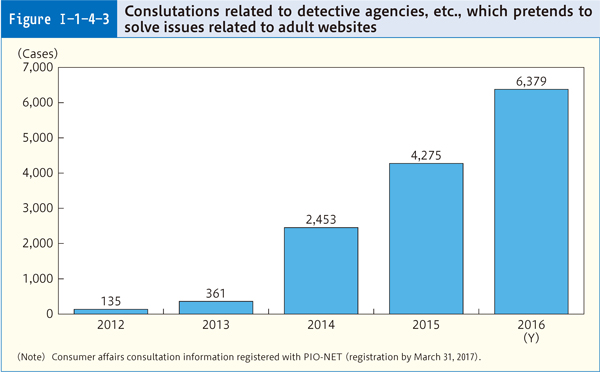
Caution is required for fraudulent tactics involving the elderly.
- The number of consultations related to fraudulent tactics involving the elderly remains high.
- Recently, investment solicitation problems are prominent such as cases involving the purchase of "virtual currency" or "rental owner agreements."
- It is important to continue awareness activities to protect the safety of the elderly.
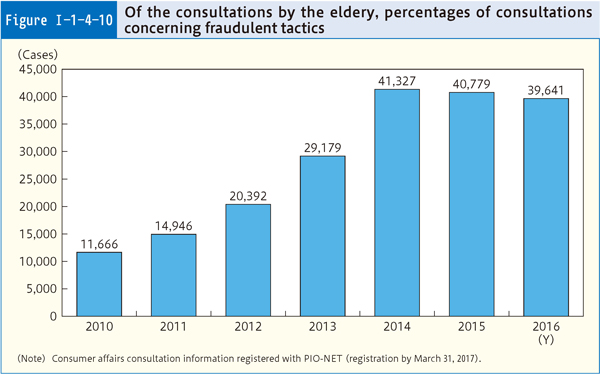
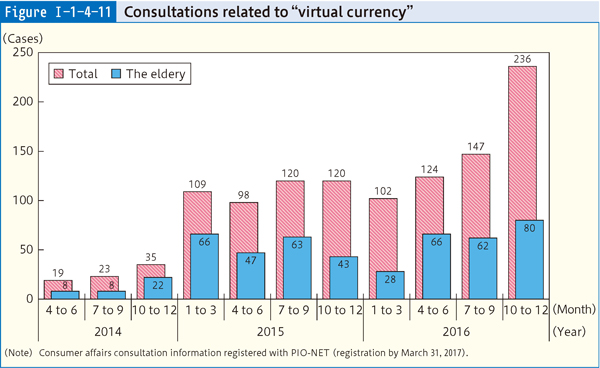
- Consultations related to fraudulent tactics: Consultations registered with PIO-NET as "fraud," "billing fraud," "loan security fraud" or "refund fraud" categories, which were chosen when consumers or the local consumer affairs centers, etc. had a strong impression that the businesses had the intention to carry out fraud.


